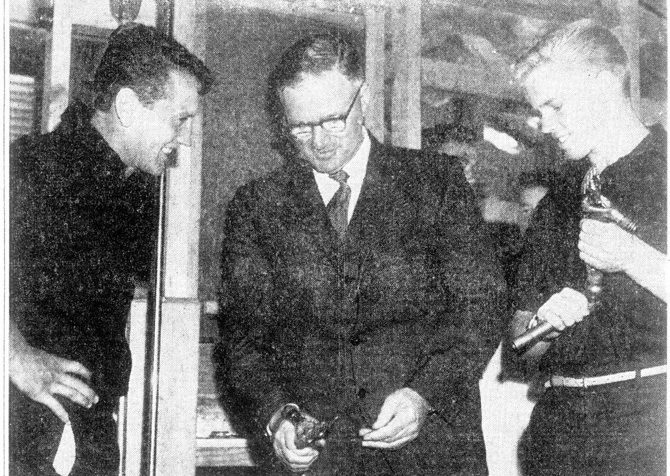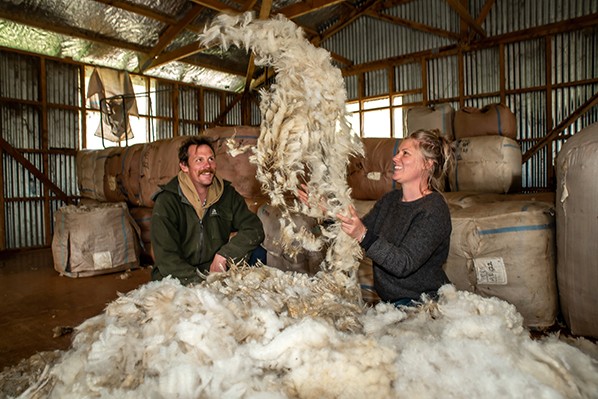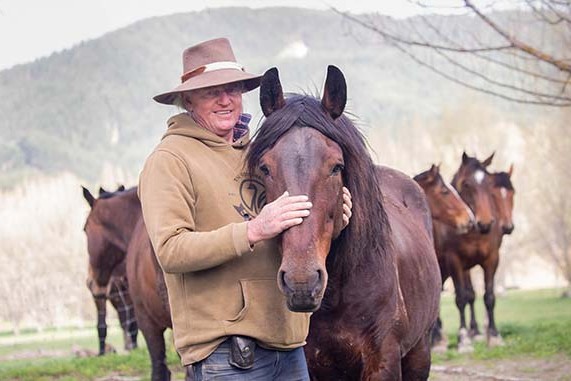Hard yakka has always been an accepted part of farming. As in other pursuits like sport, it’s not only a necessity but helps build achievement and great camaraderie among the work team.
The everyday grind of farming not only sees bouts of hard physical work but underlying is the constant mental drive for completion of goals in the farm plan, particularly with owners and managers. A worthy aim is a confident feeling of control, enhanced with effective teamwork and risk management for things you can’t control. Being on top of a smooth-running farm business is the ultimate.
This author has been fortunate to experience some of the hard yakka and energetic personalities contributing to teamwork and achievement in both sport and farming.
An early highlight for me at Napier Boys High School was the opportunity, along with good mate Mike Mohi, to complete a shearing course with the famous Bowen brothers, Godfrey and Ivan.
With engaging personalities they instilled not only shearing skills but a strong work ethic. In the hazy photo from around 1960, Mike and I are with then minister of Agriculture, Mr Hayman, enthusing about shearing after one of these lessons and at the opening of the new school woolshed.

In those days the school had a crack rugby first XV unbeaten by other schools and with several Hawke’s Bay under 23 reps including Mike and myself. He was also the assistant coach of our team. We were both to eventually work in farm-related jobs with Mike becoming a high-profile figure in Maori land conservation as well as running a farm and contract shearing gang. While still at school he had been considered by then Hawke’s Bay selector Colin Le Quesne to play at the tender age of 17 for Hawke’s Bay against the touring British Lions, only to have it scuttled by then school headmaster and rugby union chairman ‘Honk’ Henderson.
As well as being multi-talented Mike was a character. During the usual reminiscing among a group at a recent rugby reunion Mike was heard to say ‘I side-stepped ex-All Black Kel Tremaine once …. he had the ball!’
Many agree the hard work and satisfaction of achievement in rugby and other team sports has parallels in farming with good teamwork paramount. This is often seen when farmers and researchers work together with productive results.
A great example for me was the development of genetics programme Sheep Improvement Ltd in the late 1990s. The success in joining the likes of Animalplan, Flocklinc and others into an innovative system hinged on some very good teamwork between farmers and geneticists. The skilful building of the system relied on experts like Drs John McEwen and Neil Clarke and Prof Dorian Garrick. Farmer acceptance and implementation was ensured by producer organisation and sheep council farming leaders spearheaded by Lochie McGillivray, Robin Campbell and Jeremy Austin.
For me as project manager this was a formidable team which was always going to get the job across the line with spectacular ongoing benefits to sheep farmers and the wider industry.
Examples of committed hard work in farming are plentiful. A first hand experience I had was working with Rangitikei farmer Denis Hocking in the early 1990s when I share-grazed my hobby flock of Merinos on his farm near Bulls.
Good friend and Wools of NZ workmate Richard Gavigan and I helped Denis shear his 1200 hefty Coopworth ewes. On the final afternoon we finished work with about 75 ewes still in the catching pens and on asking him if he needed us the next day Denis replied ‘no don’t worry boys I’ll come back after dinner and knock them off’.
As a part-time shearer I was knackered and gob-smacked at the relaxed and matter-of-fact attitude of hard-working Denis, though Richard, being a fitness fanatic, pretty much took the hard work in his stride. We had both benefited from occasional honing of our shearing skills with Robin Kidd’s Wools of NZ instructors.
The balance between getting the job done as part of your operational plan and spending time fine-tuning the strategic side is often difficult to achieve.
We always enjoyed visiting the Hocking farm as combined with the hard yakka was much innovation and interest. With high university qualifications Denis ran sound sheep and cattle enterprises combined with farm forestry which saw nearly equal areas of trees harvested and planted annually with novelty use sometimes of a couple of Clydesdales to pull logs out. The trees were not only pine monocultures for timber but included a variety of other species like cypress, blackwood and eucalypts. Denis had long been a leading figure in farm forestry.
Hard work by farmers is often subjected to the ‘work smarter not harder’ mantra. A classic example was related to me by a farm adviser friend who said he arrived one day at Joe’s farm to find him sweating over the hand-piece ‘button holing’ his large flock of ewes prior to the rams going out. On politely asking Joe why he was doing this it was resolved there would be absolutely no benefit to animal health, performance and lambing percentage. After further discussion it was agreed by Joe that his energy would be better spent on other priority activities and the job was abruptly abandoned.
The balance between getting the job done as part of your operational plan and spending time fine-tuning the strategic side is often difficult to achieve. This is where teamwork comes in with other members of your family and/or work force, as well as rural professionals. Often meaning a good proportion of time spent on office work to ensure the farm plans are alive and well and being effectively implemented.
The old and sometimes ingrained fear by farmers that they’d be labelled lazy if caught inside by a phone call during the day is long gone.
The benefits of including off-farm help, perhaps from your farm adviser, with farm planning and operations can be enormous. A classic example for me was a farm adviser acquaintance once quoted as saying to a farmer client ‘spend $500 on me and I’ll make you $5000’. Such a cost:benefit ratio of 1:10 is not uncommon underlining the great results possible from outside advice.
The above example reminds me of an amusing incident when I happened to be sitting next to a farmer once on a passenger flight out of Christchurch. After striking up a conversation about farming and responding that I was involved in research and development he abruptly said ‘oh, so you’re one of those farm adviser jokers?’ I reacted by recounting the above example of potential benefits from farm advisers.
The farmer, obviously a man of few words, seemed uninterested by not responding and carrying on reading his book. Then after we had disembarked the aircraft he eagerly sought me out in the terminal and asked ‘what was that farm adviser’s name again?’.





